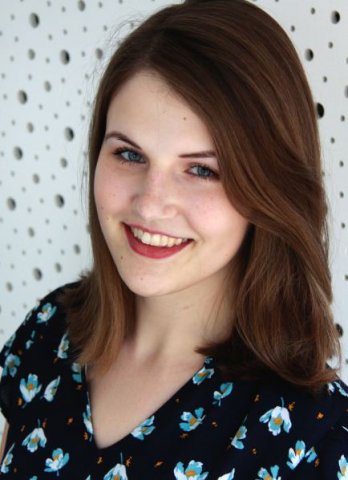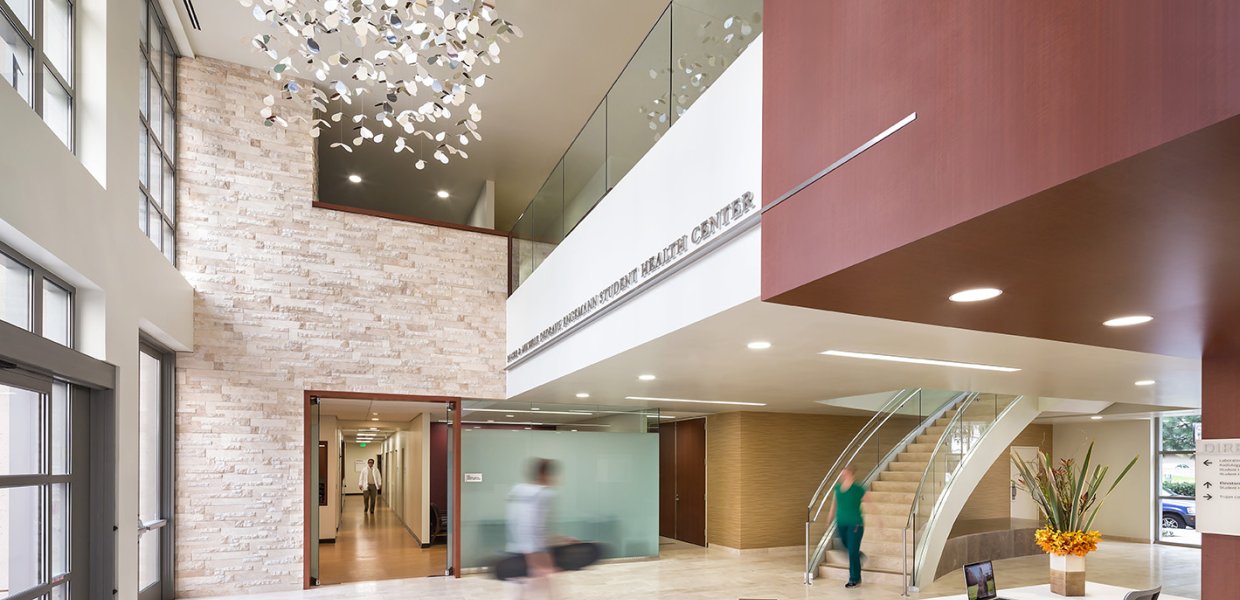
Let me start this article by saying: Hi, I am so glad you're reading this and are open to learning more about mental health resources on and off campus. If you’re struggling with mental health issues, I want you to know that you are not alone. I have been in a very similar situation. About a year ago, I moved across the ocean from Europe to pursue my master's degree in communication management at USC Annenberg. I felt like life was just a little too overwhelming to make it through alone, so I looked into what resources were available to me at USC to get help — and I am so glad I did.
From the moment I started my mental health journey, I spoke to many different people about my experience with therapy and other different resources. I noticed that sharing often helped other people open up about their own challenges, thoughts and fears. Some of the people I spoke to had gone to therapy before and loved it, some of them tried therapy and felt disappointed, and some felt hesitant to seek help in the first place. In all of these chats I heard many different thoughts, questions and worries; I would later learn that misconceptions about mental health care often keep people from considering therapy as a viable option for themselves.
As a communications graduate student who had a very positive experience with mental health care, I believe that providing some clarity can help us feel more confident in opening up the conversation and feeling more prepared to actually get the help we need. That's why I’m sharing with you some of the most common misconceptions I’ve heard and paired them with my own experience and research.
Misconception: “USC Mental Health Services has an incredibly long wait time.”
Fact: As of today, you can schedule a same-day intake call where next steps and timelines will be determined based on a student’s personal needs. One-time, 30-minute “Let’s Talk” sessions on Zoom are also available for same-day or next-day appointments. Last year, USC’s Department of Psychiatry opened a new practice on Engemann’s fifth floor called Psychiatry and Behavioral Health Services (PBHS), where students can receive long-term mental health services. Also, USC Student Health now has 85 psychiatrists, therapists and other mental health professionals that students can turn to for expert help. To meet every student’s individual needs, they also offer specific sessions with dedicated therapists for APASS, CBCSA, La CASA, LGBTRC, OIS, dance, law and SCA students with more dedicated therapists coming to other schools and programs in the near future.
My personal experience: Last year, despite my not being in a crisis situation nor needing an appointment right away, it took me only a few days from booking an intake call on MySHR to getting my first short-term counseling appointment.
Misconception: “The counselors at USC aren’t really qualified to help me, I’ve heard about a few students who said they didn’t help them at all.”
Fact: USC’s mental health providers are all faculty members in the department of psychiatry and hold the same or higher qualifications that you would find in a private practice. Keep in mind that it sometimes takes some time until you find a therapist whose approach is right for you. Always know that you have the option to ask for a different provider if you feel like you are not making progress.
My personal experience: I have at least six friends who went to counseling and mental health services, loved their counselors, and told me that they were helped, not only during the short-term counseling they received, but also in finding a long-term therapist afterwards. I personally felt my counselor (who had a LCSW — Licensed Clinical Social Worker qualification) was able to understand my issues immediately and was a great fit for me. In just ten weeks he helped improve my life immensely before I then moved on to my long-term (also LCSW qualified) therapist in a private practice in downtown Los Angeles.
Misconception: “Therapy is super-expensive and USC only offers a few free sessions, max.”
Fact: USC offers a wide range of free services, including but not limited to Let’s Talk sessions, one-time Solution Sessions, short-term counseling, group therapy, workshops, and the crisis hotline. Outside of USC, many therapists offer appointments on a “sliding scale” base, which means that your sessions would be priced based on your income. There are also various services and centers that offer counseling for free. Also, as I mentioned above, USC now has an outpatient mental health practice on the fifth floor of the Engemann building that provides high quality accessible care to USC students.
My personal experience: My eight appointments with USC for short-term counseling were absolutely free. The counselor I was referred to after that time was over accepted my USC student health insurance and my subsequent sessions cost me less than $15 per session. Now I'm seeing a weekly therapist through USC Hillel, a free service to all USC students, regardless of religious affiliation.
Misconception: “I'm not struggling enough to seek help yet.”
Fact: Anyone can benefit from therapy, and there are enough resources on campus to help everyone seek help at any stage. If you don’t feel ready to commit to short-term sessions yet, you can always start with the drop-in, one-time “Let’s Talk” sessions or Solution Sessions. They also help you get a good feeling of what short- or long-term therapy might feel like.
My personal experience: Before longer-term therapy, I started with a short-term appointment as a preventative measure. I wasn’t experiencing any severe mental health struggles at the time, but I knew that I could be in the honeymoon phase of having moved to a new country. When reality of what my life was like hit me a few weeks later, I was so grateful that I made the appointment because I knew I had a safe space where I could work through everything.
I hope that helped you get a better understanding of what is available to you here at USC and what receiving mental health care as a student can look like. The most important thing I want you to know is that you are not alone. While I do want to acknowledge that there might still be struggles with finding the right person or approach for you and working through mental health issues isn't always a walk in the park - the bottom line is that in the end, it will be worth it. There are other people like me who have dealt with mental health challenges while at USC, and my hope is that our experiences can help provide you with guidance and comfort. I want you to know, student to student, Trojan to Trojan, that taking that first step helped me immensely – and I hope that reading this gave you enough courage to reach out for help, too.
For more information, please visit counseling and mental health center.
